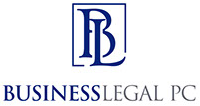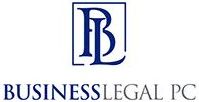- Business Formation -

Business Formation
• Start-ups • Purchase an existing business • Taking over family business
Start-Ups
Ignorance is not bliss when it comes to starting a business. Unfortunately, from a legal standpoint, most business owners don’t know what they don't know. Use to relying on their own initiative and drive, many entrepreneurs attempt to accomplish the formation of their new venture all by themselves. When starting a new business, surrounding yourself with a team of good people is a strategy for success, and should include a business attorney, CPA and commercial insurance agent. Great leaders prevent problems before they happen, and great business owners realize the limitations of their expertise, and seek counsel, when appropriate.
Starting a business involves planning, making key financial decisions and completing a series of legal decisions such as:
Determine the Legal Structure
of your Business:
Decide which form of ownership is best for the business: sole proprietorship, general partnership, Limited Liability Company (LLC), corporation, S corporation, nonprofit or cooperative.
Register a Business Name
(*Doing Business As*):
Register your business name with your state government.
Get a Tax
Identification Number:
Learn which tax identification number you'll need to obtain from the IRS and your state revenue agency.
Purchasing an Existing Business
Purchasing an existing business is a great opportunity to hit the ground running. However, there are inherent risks associated with an existing business from which the purchaser will want to assure protection. Key concerns are:
1. Asset Purchase verses a stock or equity purchase;
2. Selecting the right entity if only purchasing assets;
3. Completing all the necessary due diligence to assure the purchaser is not
acquiring any unexpected problems, whether environmental, litigation or financial;
4. Assuring against future competition from the former owner;
5. Securing the transition of the needed expertise to transition the business.
As a seller of a business, legal representation can assure that liabilities, arising after the business is sold, do not come back to the former business owner. Whether purchasing or selling, BusinessLegal can counsel the purchaser or seller to assure the sale or acquisition is completed in a manner that protects the interests of the parties.
Contact Us Today!
Send us a message or call (239) 329-2151
On the Way? Here’s a Map!
3812 Skyline Blvd., Unit B, Cape Coral, FL 33914


Home
About
Practice Areas
Resources
Testimonials
Forms
Contact
Accessible . Practical . Results
Copyright © Business Legal, PC. All Rights Reserved.
